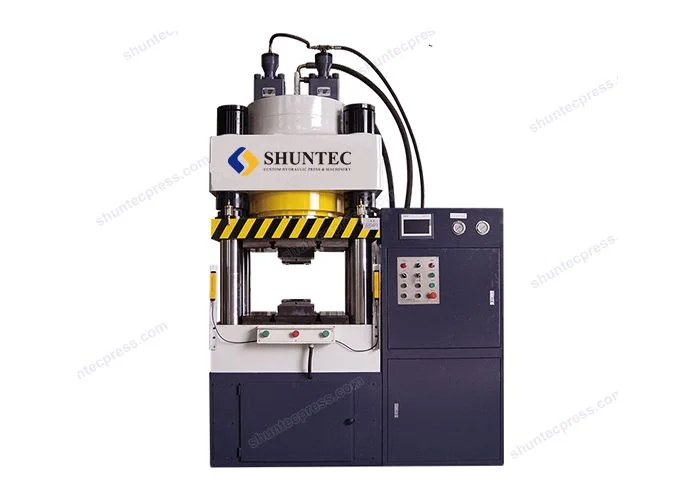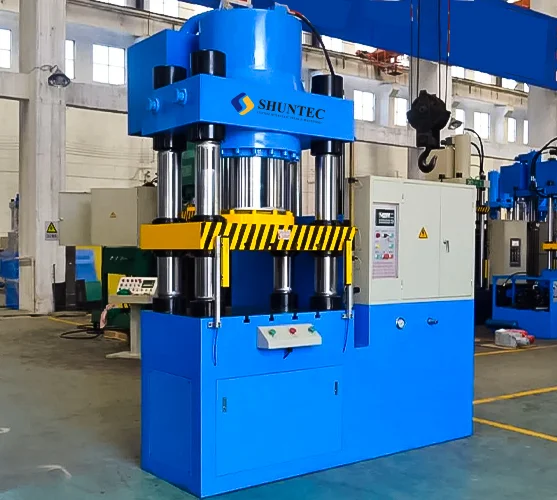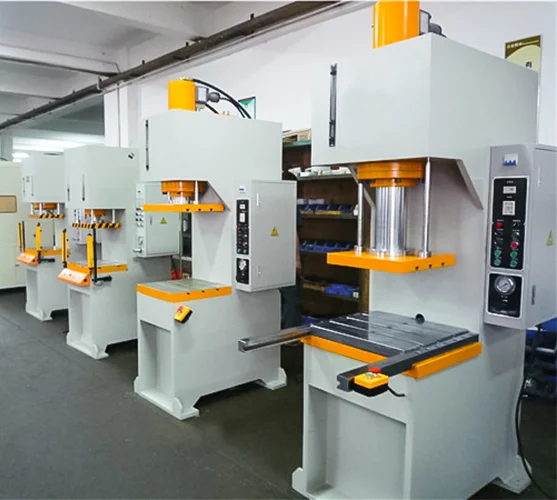Introduction
Hydraulic presses, despite being one of the most powerful tools in the manufacturing and industrial sector, often draw attention for their seemingly slow operation. Yet, this unique feature is a product of meticulous engineering design and fundamental physics that prioritize precision and safety over speed. In this article, we aim to delve into the reasons behind the slower operation of hydraulic presses, explore the factors causing hydraulic cylinders to slow down, discuss potential ways to speed up hydraulic presses, troubleshoot common issues, and reveal the mechanisms that control the speed of a hydraulic cylinder.



Understanding the Mechanism of a Hydraulic Press
A hydraulic press operates based on Pascal’s Law, which states that pressure applied at any point in a confined fluid is transmitted equally in all directions. This implies that a smaller force can be magnified into a larger one through the use of hydraulic fluid and carefully arranged pistons of different sizes. In simpler terms, when a small force is applied on the smaller piston, it gets amplified at the larger piston due to the pressure transmission through the hydraulic fluid.
The primary components of a hydraulic press include the hydraulic cylinder, which houses the piston and ram assembly, and the hydraulic system that contains the pump and valves for fluid control. The hydraulic system builds up pressure in the hydraulic fluid, which then exerts a force on the piston. The force on the piston is transferred to the ram, which performs the necessary work on the material being processed.
Why are Hydraulic Presses Slow?
The speed of operation in a hydraulic press is governed by fluid mechanics. Here are a few reasons explaining their slower speed:
- Fluid mechanics: Hydraulic fluid doesn’t compress like a gas; instead, it flows from one place to another. The speed of fluid movement is limited, thereby limiting the speed at which the press can operate.
- Safety: The presses are designed to apply significant force over a short distance. A fast-moving press would not only pose a safety risk but also potentially damage the equipment or the product being manufactured.
- Controlled application of force: One of the key advantages of hydraulic presses is their ability to apply precise amounts of force. Slower operation ensures that the force is applied smoothly and consistently, preventing sudden shocks to the system and allowing for greater precision in manufacturing processes.
What Causes a Hydraulic Cylinder to Slow Down?
Hydraulic cylinders, being the heart of a hydraulic press, can sometimes slow down due to several reasons:
- Hydraulic fluid viscosity: Viscosity refers to the thickness of a liquid, and hydraulic fluid is no exception. If the fluid viscosity is too high, it will flow slowly, thereby slowing down the operation of the cylinder.
- Maintenance issues: Leaks in the hydraulic system or the presence of air can cause inefficiencies in pressure transmission, thus slowing down the cylinder.
- Internal component wear: Wear and tear on seals or other internal components can reduce the efficiency of the hydraulic cylinder, leading to slower operation.

How Can I Speed Up My Hydraulic Press?
Speeding up a hydraulic press involves addressing the factors that contribute to its slower operation. Here are a few tips:
- Regular maintenance: Ensuring your press is well-maintained will keep it running at optimal efficiency. This includes checking for leaks, replacing worn-out seals, and ensuring that the hydraulic fluid is clean and at the appropriate level.
- Hydraulic fluid: Using the correct type and viscosity of hydraulic fluid can improve the speed of operation. A fluid with lower viscosity will flow more quickly, potentially speeding up the press operation.
- Upgrades or modifications: In some cases, you might be able to upgrade your hydraulic pump to a larger capacity or modify your hydraulic system to improve its efficiency, thus increasing the speed of your press.
Why Won’t My Hydraulic Press Go Down?
If your hydraulic press isn’t operating as expected, there could be several causes:
- Mechanical issues: Problems with the mechanical components of the press, such as the ram or piston, can prevent it from moving.
- Hydraulic fluid issues: Low fluid levels, the presence of air in the system, or the use of incorrect fluid can all cause operational issues.
- Electrical system issues: Since most hydraulic presses are controlled by an electrical system, any electrical faults can prevent the press from operating correctly.
What Controls the Speed of a Hydraulic Cylinder?
The speed of a hydraulic cylinder is controlled by several key factors:
- Pressure control valves: These components regulate the pressure in the hydraulic system, which in turn influences the speed at which the hydraulic fluid moves and, therefore, the speed of the cylinder.
- Hydraulic fluid and pump capacity: The viscosity of the hydraulic fluid and the capacity of the hydraulic pump also play significant roles in determining the speed of the hydraulic cylinder.
- System design and configuration: The overall design and configuration of the hydraulic system, including the size and arrangement of the cylinders, the capacity of the pump, and the control mechanisms in place, all impact the speed of the hydraulic cylinder.

Conclusion
Understanding the operation and limitations of hydraulic presses, especially why they appear to work slowly, enables us to appreciate the delicate balance between power, precision, and safety in these mighty machines. Regular maintenance and correct handling can help optimize their performance, potentially making them operate faster and more efficiently. Nonetheless, remember that the slower operation is often by design and is critical to the safe and precise application of enormous forces that hydraulic presses are renowned for.
